第30章 Chapter 4 Conspicuous Consumption(10)
Throughout the entire evolution of conspicuous expenditure, whether of goods or of services or human life, runs the obvious implication that in order to effectually mend the consumer's good fame it must be an expenditure of superfluities. In order to be reputable it must be wasteful. No merit would accrue from the consumption of the bare necessaries of life, except by comparison with the abjectly poor who fall short even of the subsistence minimum; and no standard of expenditure could result from such a comparison, except the most prosaic and unattractive level of decency. A standard of life would still be possible which should admit of invidious comparison in other respects than that of opulence; as, for instance, a comparison in various directions in the manifestation of moral, physical, intellectual, or aesthetic force. Comparison in all these directions is in vogue today; and the comparison made in these respects is commonly so inextricably bound up with the pecuniary comparison as to be scarcely distinguishable from the latter. This is especially true as regards the current rating of expressions of intellectual and aesthetic force or proficiency' so that we frequently interpret as aesthetic or intellectual a difference which in substance is pecuniary only.
The use of the term "waste" is in one respect an unfortunate one. As used in the speech of everyday life the word carries an undertone of deprecation. It is here used for want of a better term that will adequately describe the same range of motives and of phenomena, and it is not to be taken in an odious sense, as implying an illegitimate expenditure of human products or of human life. In the view of economic theory the expenditure in question is no more and no less legitimate than any other expenditure. It is here called "waste" because this expenditure does not serve human life or human well-being on the whole, not because it is waste or misdirection of effort or expenditure as viewed from the standpoint of the individual consumer who chooses it. If he chooses it, that disposes of the question of its relative utility to him, as compared with other forms of consumption that would not be deprecated on account of their wastefulness. Whatever form of expenditure the consumer chooses, or whatever end he seeks in making his choice, has utility to him by virtue of his preference. As seen from the point of view of the individual consumer, the question of wastefulness does not arise within the scope of economic theory proper. The use of the word "waste" as a technical term, therefore, implies no deprecation of the motives or of the ends sought by the consumer under this canon of conspicuous waste.
But it is, on other grounds, worth noting that the term "waste" in the language of everyday life implies deprecation of what is characterized as wasteful. This common-sense implication is itself an outcropping of the instinct of workmanship. The popular reprobation of waste goes to say that in order to be at peace with himself the common man must be able to see in any and all human effort and human enjoyment an enhancement of life and well-being on the whole. In order to meet with unqualified approval, any economic fact must approve itself under the test of impersonal usefulness-usefulness as seen from the point of view of the generically human. Relative or competitive advantage of one individual in comparison with another does not satisfy the economic conscience, and therefore competitive expenditure has not the approval of this conscience.